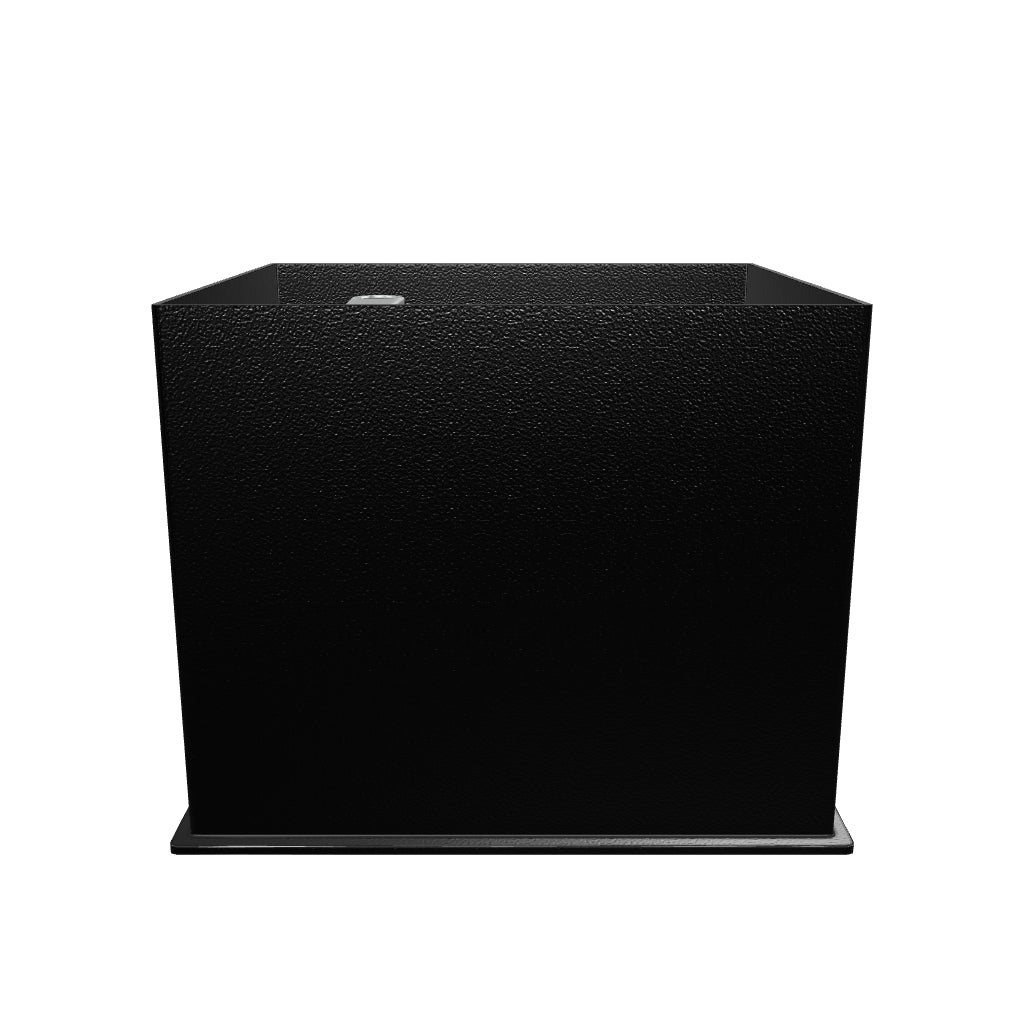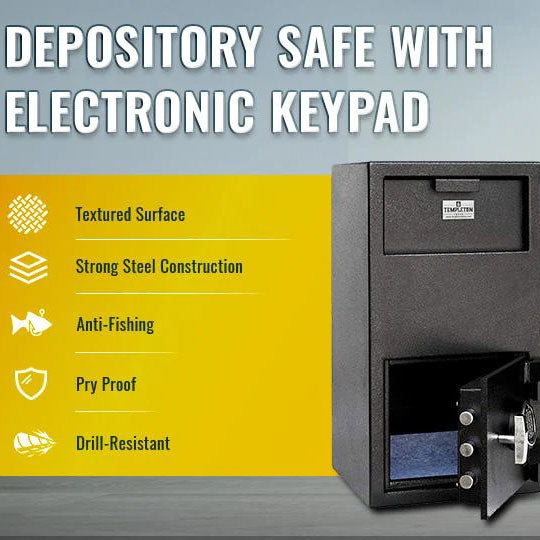The Importance of Security in Clinics and Doctor's Offices: Templeton Safes Tips
In the world of healthcare, ensuring the safety and security of patients and employees is crucial. This is particularly true in clinics and doctor's offices, where sensitive patient information is stored and valuable assets are present. In this blog post, we will discuss the importance of security in clinics and doctor's offices, and provide valuable tips from Templeton Safes to improve your protection measures.
Why is Security Important in Clinics and Doctor's Offices?
There are several reasons why security is essential in clinics and doctor's offices. First and foremost, these settings house valuable assets such as medical equipment, pharmaceuticals, and cash. Theft of these items can result in significant financial losses for the clinic or office. In addition to theft, vandalism can also be a problem in these settings. Damage to equipment or property can be costly to repair or replace.
Another reason why security is important in clinics and doctor's offices is the presence of sensitive patient information. Electronic medical records (EMRs) are now the norm in healthcare settings, and the protection of this information is critical. Unauthorized access to EMRs can result in identity theft, medical fraud, and other serious consequences. Additionally, physical patient records must also be protected, as they contain confidential information that should not be disclosed to unauthorized individuals.
Finally, clinics and doctor's offices must ensure the safety of their employees and patients. Healthcare settings can be targets for violence, including robbery, assault, and even active shooter incidents. Ensuring that the building is secure can help to prevent these types of incidents and protect the individuals inside.
Tips for Improving Security in Clinics and Doctor's Offices
Now that we have discussed why security is important in clinics and doctor's offices, let's look at some tips from Templeton Safes for improving your protection measures.
Install High-Quality Safes and Locks
One of the most effective ways to protect valuable assets is by installing high-quality safes and locks. Safes can be used to store cash, pharmaceuticals, and other valuable items. Locks can be installed on doors and windows to prevent unauthorized access to the building. Additionally, installing a safe or lock can act as a deterrent to potential thieves, as they will be less likely to target a building that has visible security measures in place.
When choosing safes and locks, it is important to select products that are high-quality and meet industry standards. Look for safes that have a UL rating or are certified by organizations such as Underwriters Laboratories (UL) or the Safe and Vault Technicians Association (SAVTA). Similarly, locks should be of a high-quality and meet industry standards such as those set by the American National Standards Institute (ANSI).
Control Access to the Building
Controlling access to the building is another important way to improve security in clinics and doctor's offices. This can be done by installing keypads, card readers, or other access control systems on doors and gates. Access control systems can be programmed to allow entry only to authorized personnel, and can also keep a log of who has entered and exited the building.
It is also important to control access to sensitive areas within the building, such as storage rooms or file cabinets containing patient records. Installing locks or access control systems on these areas can help to ensure that only authorized personnel are able to access them.
Train Employees on Security Protocols
Training employees on security protocols is essential for ensuring the safety and security of the clinic or doctor's office. Employees should be trained on how to properly use security equipment such as safes and locks, and should also be familiar with access control systems and emergency procedures.
In addition to training on security equipment, employees should also be trained on how to recognize and respond to security threats. This includes training on how to identify suspicious individuals, how to respond to threats such as robberies or active shooter incidents, and how to evacuate the building safely in the event of an emergency.
Training should be conducted regularly and updated as needed to ensure that employees are up-to-date on the latest security protocols and best practices. It may also be helpful to conduct regular security drills to test the effectiveness of the security measures in place and to identify areas that may need improvement.
Implement Security Cameras and Alarms
Security cameras and alarms can be valuable tools for improving security in clinics and doctor's offices. Cameras can be used to monitor the building and record any suspicious activity. Alarms can be triggered in the event of a break-in or other security threat, alerting employees and authorities to the situation.
When selecting security cameras and alarms, it is important to choose high-quality products that meet industry standards. Cameras should be positioned in areas where they can effectively monitor the building, such as entrances, exits, and areas where valuable assets are stored. Alarms should be loud enough to be heard throughout the building and should be connected to a monitoring service that can alert authorities in the event of an emergency.
Conduct Regular Security Audits
Conducting regular security audits can help to identify areas where security measures may be lacking or ineffective. A security audit involves a thorough review of the building's security measures, including locks, safes, access control systems, and alarms.
During a security audit, vulnerabilities in the building's security measures can be identified and addressed. For example, if a door does not have a lock or the lock is not functioning properly, this can be identified and repaired during the audit. Additionally, a security audit can help to identify areas where additional security measures may be necessary, such as installing cameras in areas where they were not previously installed.
Ensuring the safety and security of clinics and doctor's offices is essential for protecting valuable assets, sensitive patient information, and the individuals inside the building. By implementing the tips outlined in this blog post, such as installing high-quality safes and locks, controlling access to the building, training employees on security protocols, implementing security cameras and alarms, and conducting regular security audits, you can improve your protection measures and ensure a secure environment for your employees and patients. Templeton Safes is here to help you with all of your security needs, so don't hesitate to reach out for assistance in improving the security of your clinic or doctor's office.






























